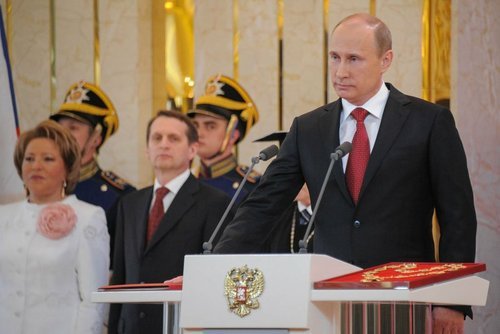
By: Shahab Moghadam
The world’s eyes turned to a small Black Sea resort town on Friday as Russia played host to its first Olympic Games since 1980, when the Summer Olympics were held in Soviet-era Moscow. As much as the average person may believe that the Olympics are purely a showcase of the world’s best athletes as well as a rare showcase of peaceful and friendly international competition, the host country’s status on the world political stage is widely considered by political analysts to be of great significance before and during the Games.
On few occasions has international politics played a greater role in an Olympic Games than it does this year in Sochi, as the Olympic venues lie just a days’ car ride away from the war-torn Chechnya region, which many people above a certain age may remember as the thorn in the side of the newly-democratic Russian Federation during the Presidency of Boris Yeltsin, which lasted from the fall of the Soviet Union in 1991 until the rise of a younger yet equally strong-willed Vladimir Putin in 2000.
Although the main headline out of Russia in those heady years was of economic uncertainty as the nation transitioned to a market economy after seven decades of socialist central planning, Moscow’s bloody conflicts with Muslim rebels in its southern region was of great concern to not only the Russian population, which grew accustomed to such terrifying spectacles as bombings in their capital city and battles involving their loved ones in far-off portions of their massive country, but also the Western World, which had yet to experience acts of terrorism on their home soil.
Now, over a decade after the war-weariness and economic difficulties of a frightened Russian public led to the rise of Vladimir Putin, the world turns to the Caucuses region of Russia again, this time with Russia on the rise globally as the United States faces obstacles and blunders throughout the world, from allies upset by NSA surveillance and foreign policy decisions coming out of Washington to enemies resurgent due to increasing American isolationism. Despite earlier concerns about the security of the Olympic host city, these Games are now widely expected by allies and foes of Russia alike to be a showcase not only of athletes and peaceful competition, but also of a Russia floating on a decade worth of oil riches and ascendant on the global stage despite concerns about controversial policies coming out of Moscow such as restrictions on members of the LGBT community and diplomatic standoffs with the West over Ukraine.
In short, like it or not, Russia’s on the rise and better positioned than it has been in centuries to jump in as America looks increasingly inward.
